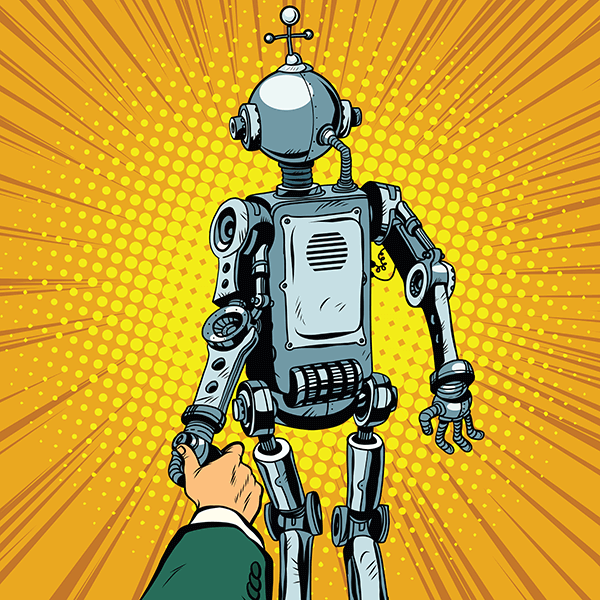Two BIG trends the past few years in the software testing space been AI automation Testing and Playwright.
In case you don’t know in a previous post I showed how Playwright has recently surpassed Cypress.io, making it a top choice for developers looking to automate their testing. in downloads.
And looking at Microsoft Playwright on GitHub you can see how popular it has become with over 65K stars.
And based on all conversation I have on my podcasts, I’m getting the sense that it has surpassed Selenium as well, especially in terms of QA efficiency.
And let’s not forget the buzz around Gen-AI and prompt engineering in test automation—it’s clear the future is here.
That’s why I was excited to speak with Ryo is the Co-Founder and CEO of Autify all about how to combine the two.
And the best part? You can automate your testing process and automate testing task seamlessly!
The solution does not vendor lock you!
Sound cool – right?
Let’s dive in on the magic of AI processing with Playwright tests.
But first… let’s discuss how to leverage these automation tools effectively. (Also seeing is believing but check it out in action for yourself by watching our previous webinar on this solution)
The Challenge: Test Creation and Maintenance
A recent poll of testing professionals revealed several critical challenges teams face today. The top concerns included:
- Aggressive timelines set by project managers without consulting automation engineers
- Incomplete or Ambiguous Requirements
- Maintaining the vast test cases with different modules is time-consuming, but you can leverage automation to streamline this task.
- Being able to identify Shadow root elements in the DOM
- Lack of required information until very late into development
These challenges often lead to bottlenecks in the development process and can impact the quality of the final product. But what if AI could help address these pain points?
Enter AI-Powered Test Automation
Autify, a company that has been investing in AI since 2019, has developed an innovative approach to these challenges. Their latest product, Autify Genesis, represents a significant leap forward in the creation and maintenance of test automation scripts and playwright tests with AI.
Ryo Chikazawa, CEO of Autify, explains their early commitment to AI: “We truly believe in AI. We think AI is going to revolutionize software testing and software development itself. We need to support and help the customers solve that earlier part of this problem as well so that we can provide a whole value chain for the entire testing lifecycle.”
I've also heard this from many other automation experts and vendors who tell me this is the future of testing and development.

How It Works
The process is remarkably straightforward:
- Feed your requirements into the system (these can be PDF documents, Word files, Figma designs, Jira tickets or plan text instructions.
2. The AI analyzes these requirements and generates makes test cases in Gherkin format
3. An AI agent then interacts with your application in real-time to generate accurate Playwright scripts
4. The system maintains these scripts as your application evolves
What makes this approach using playwright unique is the combination of AI understanding and real-world interaction.
As Ryo explains: “One of the biggest challenges of generating the test case or Playwright script by just using ChatGPT or other LLM, is it can create a very nice little kind of Playwright script. It looks works but it doesn't because it doesn't know the structure of your application.”
Security and Data Privacy Concerns with AI and Testing
During the webinar, one attendee raised an important question about security: “From what I understand, you feed the tool with documents and requirements and even access to internal tools like Jira, etc. Isn't that not recommended from a security perspective?”
Addressing these concerns, Ryo clarified that Autify is designed with security in mind: “Although we need to use the public kind of AI, we are actually AI model agnostic, so if you have an internal AI, we can also switch that into your internal AI, too. With the on-prem version, we're not going to store your requirements on our environment.”
The Benefits of This AI Assistant Approach
Real-world results from companies using this technology are impressive. One tech startup's experience showed how tools like auto playwright has supercharged their SDLC. For example:
- 55% time savings in test case creation by integrating AI tools like OpenAI into your workflow.
- 95.2% accuracy in generated test cases
- 6.6x faster test case creation and test development (including review time)
- 9x faster Playwright code creation

Why Playwright?
There are so many automation options out there right now that many testers have a hard time choosing.
So when asked about the choice of Playwright, Ryo shared: “I was pretty amazed by Playwright. It's pretty fast and very light. And then there are lots of great element locators and so on and so forth. It's very stable, which allows teams to automate their testing processes effectively. It can automatically wait until the element gets loaded.”
The decision also ensures teams maintain full control over their test automation. As Ryo emphasizes:
“What we do for Autify Genesis is completely free from vendor lock-in because we generate the Playwright script so you can do whatever you want. You can just use the Playwright script to verify your application's performance with plain text instructions. You can run this anywhere you want.”
Also many experts of told me how flexible and easy to use they have found using Playwright. For example Playwright can be used for API testing as well. Making it easier ot create seamless e2e tests.
Free Getting Started with Playwright Course
The Human Element of Automated Tests
Despite the power of AI, the human element remains crucial. When polled about AI in software testing, the testing community shared varied perspectives on how to integrate these tools effectively.
- It's very effective and intriguing
- Very useful but need manual check
- Great for time savings and rapid feedback to stakeholders
- Increasing at the moment only learning the benefits
Ryo strongly emphasizes this human-AI partnership: “I don't think it's going to replace us. We truly believe that AI will be our partner to make us more productive. AI is not going to be 100% accurate. It needs interaction, it needs input.”

Looking Forward (AI-Driven Approach is inevitable)
The future of test automation lies in combining AI and modern testing frameworks.
The combination of AI and Playwright represents a significant step forward in test automation.
By handling the tedious aspects of test creation and maintenance while maintaining human oversight, this approach allows teams to achieve better coverage and faster delivery without sacrificing quality.
As testing tools evolve, the partnership between human expertise and AI capabilities will become increasingly important.
Using AI assistant determines what action to perform when you run Playwright is uber helpful.
That's why test tools like Autify Genesis demonstrate that we're moving toward a future where test automation becomes more accessible, maintainable, and efficient.
Whether you're a seasoned automation engineer or just starting your journey in test automation, keeping an eye on these AI-powered solutions could be key to staying ahead in the rapidly evolving software testing world.





